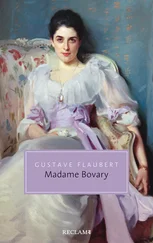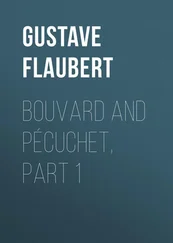Gustave Flaubert - Over Strand and Field - A Record of Travel through Brittany
Здесь есть возможность читать онлайн «Gustave Flaubert - Over Strand and Field - A Record of Travel through Brittany» — ознакомительный отрывок электронной книги совершенно бесплатно, а после прочтения отрывка купить полную версию. В некоторых случаях можно слушать аудио, скачать через торрент в формате fb2 и присутствует краткое содержание. Жанр: foreign_antique, foreign_prose, на английском языке. Описание произведения, (предисловие) а так же отзывы посетителей доступны на портале библиотеки ЛибКат.
- Название:Over Strand and Field: A Record of Travel through Brittany
- Автор:
- Жанр:
- Год:неизвестен
- ISBN:нет данных
- Рейтинг книги:3 / 5. Голосов: 1
-
Избранное:Добавить в избранное
- Отзывы:
-
Ваша оценка:
- 60
- 1
- 2
- 3
- 4
- 5
Over Strand and Field: A Record of Travel through Brittany: краткое содержание, описание и аннотация
Предлагаем к чтению аннотацию, описание, краткое содержание или предисловие (зависит от того, что написал сам автор книги «Over Strand and Field: A Record of Travel through Brittany»). Если вы не нашли необходимую информацию о книге — напишите в комментариях, мы постараемся отыскать её.
Over Strand and Field: A Record of Travel through Brittany — читать онлайн ознакомительный отрывок
Ниже представлен текст книги, разбитый по страницам. Система сохранения места последней прочитанной страницы, позволяет с удобством читать онлайн бесплатно книгу «Over Strand and Field: A Record of Travel through Brittany», без необходимости каждый раз заново искать на чём Вы остановились. Поставьте закладку, и сможете в любой момент перейти на страницу, на которой закончили чтение.
Интервал:
Закладка:
On one of the towers, and in spite of the most ordinary common sense, they have built a glass rotunda which is used for a dining-room. True, the view from it is magnificent. But the building presents so shocking an appearance from the outside, that one would, I should think, prefer to see nothing of the environs, or else to eat in the kitchen.
In order to go back to the city, we came down by a tower that was used by carriages to approach the Château. The sloping gravelled walk turns around a stone axle like the steps of a staircase. The arch is dark and lighted only by the rays that creep through the loop-holes. The columns on which the interior end of the vault rests, are decorated with grotesque or vulgar subjects. A dogmatic intention seems to have presided over their composition. It would be well for travellers to begin the inspection at the bottom, with the Aristoteles equitatus (a subject which has already been treated on one of the choir statues in the Cathedral of Rouen) and reach by degrees a pair embracing in the manner which both Lucretius and l'Amour Conjugal have recommended. The greater part of the intermediary subjects have been removed, to the despair of seekers of comical things, like ourselves; they have been removed in cold blood, with deliberate intent, for the sake of decency, and because, as one of the servants of his Majesty informed us convincingly, "a great many were improper for the lady visitors to see."
A something of infinite suavity and aristocratic serenity pervades the Château de Chenonceaux. It is situated outside of the village, which keeps at a respectful distance. It can be seen through a large avenue of trees, and is enclosed by woods and an extensive park with beautiful lawns. Built on the water, it proudly uprears its turrets and its square chimneys. The Cher flows below, and murmurs at the foot of its arches, the pointed corners of which form eddies in the tide. It is all very peaceful and charming, graceful yet robust. Its calm is not wearying and its melancholy has no tinge of bitterness.
One enters through the end of a long, arched hallway, which used to be a fencing-room. It is decorated with some armours, which, in spite of the obvious necessity of their presence, do not shock one's taste or appear out of place. The whole scheme of interior decoration is tastefully carried out; the furniture and hangings of the period have been preserved and cared for intelligently. The great, venerable mantel-pieces of the sixteenth century do not shelter the hideous and economical German stoves, which might easily be hidden in some of them.
In the kitchen, situated in a wing of the castle, which we visited later, a maid was peeling vegetables and a scullion was washing dishes, while the cook was standing in front of the stove, superintending a reasonable number of shining saucepans. It was all very delightful, and bespoke the idle and intelligent home life of a gentleman. I like the owners of Chenonceaux.
In fact, have you not often seen charming old paintings that make you gaze at them indefinitely, because they portray the period in which their owners lived, the ballets in which the farthingales of all those beautiful pink ladies whirled around, and the sword-thrusts which those noblemen gave each other with their rapiers? Here are some temptations of history. One would like to know whether those people loved as we do, and what difference existed between their passions and our own. One would like them to open their lips and tell their history, tell us everything they used to do, no matter how futile, and what their cares and pleasures used to be. It is an irritating and seductive curiosity, a dreamy desire for knowledge, such as one feels regarding the past life of a mistress… But they are deaf to the questions our eyes put to them, they remain dumb and motionless in their wooden frames, and we pass on. The moths attack their canvases, but the latter are revarnished; and the pictures will smile on when we are buried and forgotten. And others will come and gaze upon them, till the day they crumble to dust; then people will dream in the same old way before our own likenesses, and ask themselves what used to happen in our day, and whether life was not more alluring then.
I should not have spoken again of those handsome dames, if the large, full-length portrait of Madame Deshoulières, in an elaborate white dêshabille , (it was really a fine picture, and, like the much decried and seldom read efforts of the poetess, better at the second look than at the first), had not reminded me, by the expression of the mouth, which is large, full, and sensual, of the peculiar coarseness of Madame de Staël's portrait by Gérard. When I saw it two years ago, at Coppet, in bright sunshine, I could not help being impressed by those red, vinous lips and the wide, aspiring nostrils. George Sand's face offers a similar peculiarity. In all those women who were half masculine, spirituality revealed itself only in the eyes. All the rest remained material.
In point of amusing incidents, there is still at Chenonceaux, in Diane de Poitiers's room, the wide canopy bedstead of the royal favourite, done in white and red. If it belonged to me, it would be very hard for me not to use it once in a while. To sleep in the bed of Diane de Poitiers, even though it be empty, is worth as much as sleeping in that of many more palpable realities. Moreover, has it not been said that all the pleasure in these things was only imagination? Then, can you conceive of the peculiar and historical voluptuousness, for one who possesses some imagination, to lay his head on the pillow that belonged to the mistress of Francis the First, and to stretch his limbs on her mattress? (Oh! how willingly I would give all the women in the world for the mummy of Cleopatra!) But I would not dare to touch, for fear of breaking them, the porcelains belonging to Catherine de Médicis, in the dining-room, nor place my foot in the stirrup of Francis the First, for fear it might remain there, nor put my lips to the mouth-piece of the huge trumpet in the fencing-room, for fear of rupturing my lungs.
CHAPTER II.
CHÂTEAU DE CLISSON
On a hill at the foot of which two rivers mingle their waters, in a fresh landscape, brightened by the light colours of the inclined roofs, that are grouped like many sketches of Hubert, near a waterfall that turns the wheel of a mill hidden among the leaves, the Château de Clisson raises its battered roof above the tree-tops. Everything around it is calm and peaceful. The little dwellings seem to smile as if they had been built under softer skies; the waters sing their song, and patches of moss cover a stream over which hang graceful clusters of foliage. The horizon extends on one side into a tapering perspective of meadows, while on the other it rises abruptly and is enclosed by a wooded valley, the trees of which crowd together and form a green ocean.
After one crosses the bridge and arrives at the steep path which leads to the Château, one sees, standing upreared and bold on the moat on which it is built, a formidable wall, crowned with battered machicolations and bedecked with trees and ivy, the luxuriant growth of which covers the grey stones and sways in the wind, like an immense green veil which the recumbent giant moves dreamily across his shoulders. The grass is tall and dark, the plants are strong and hardy; the trunks of the ivy are twisted, knotted, and rough, and lift up the walls as with levers or hold them in the network of their branches. In one spot, a tree has grown through the wall horizontally, and, suspended in the air, has let its branches radiate around it. The moats, the steep slope of which is broken by the earth which has detached itself from the embankments and the stones which have fallen from the battlements, have a wide, deep curve, like hatred and pride; and the portal, with its strong, slightly arched ogive, and its two bays that raise the drawbridge, looks like a great helmet with holes in its visor.
Читать дальшеИнтервал:
Закладка:
Похожие книги на «Over Strand and Field: A Record of Travel through Brittany»
Представляем Вашему вниманию похожие книги на «Over Strand and Field: A Record of Travel through Brittany» списком для выбора. Мы отобрали схожую по названию и смыслу литературу в надежде предоставить читателям больше вариантов отыскать новые, интересные, ещё непрочитанные произведения.
Обсуждение, отзывы о книге «Over Strand and Field: A Record of Travel through Brittany» и просто собственные мнения читателей. Оставьте ваши комментарии, напишите, что Вы думаете о произведении, его смысле или главных героях. Укажите что конкретно понравилось, а что нет, и почему Вы так считаете.












